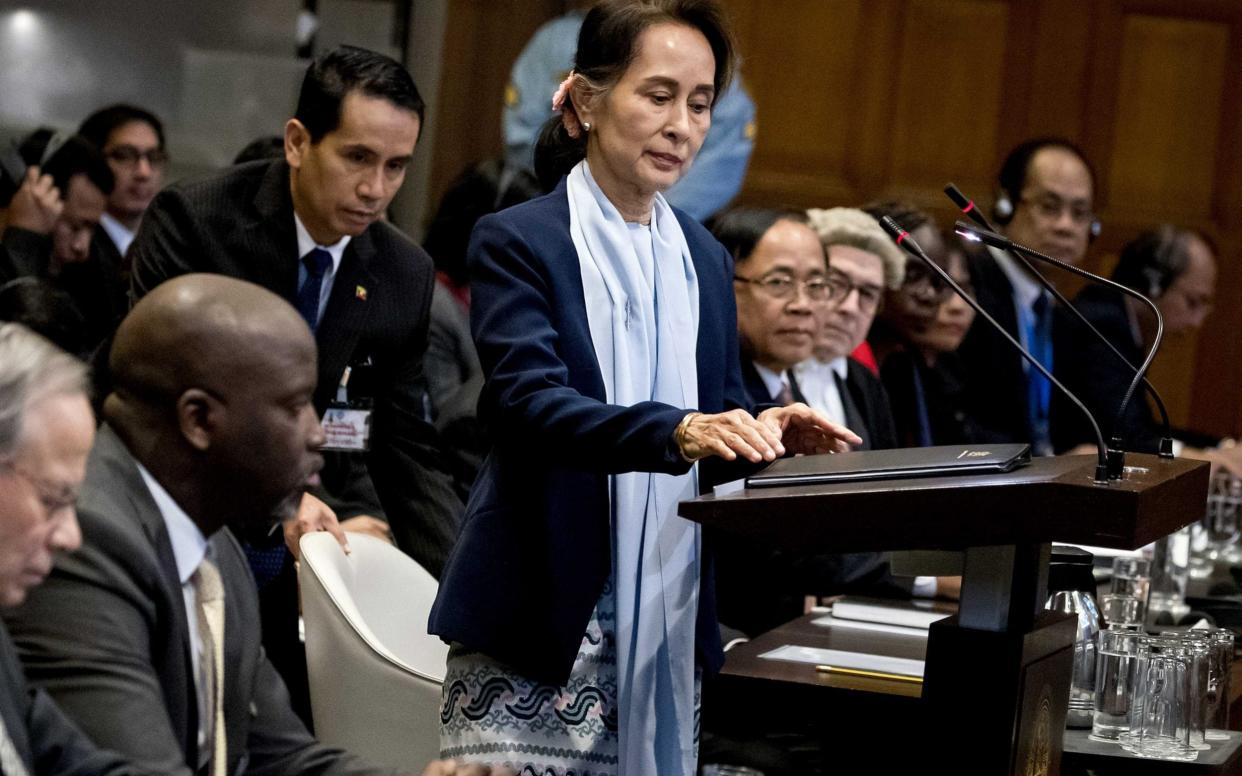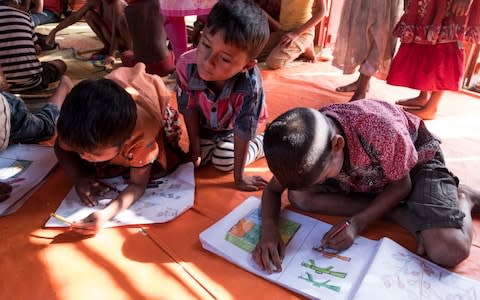Aung San Suu Kyi denies military acted with 'genocidal intent' against Rohingya

Nobel peace laureate Aung San Suu Kyi denied the Myanmar military had acted with “genocidal intent” against the country’s Rohingya Muslim minority in 2017 as she took the stand at the United Nation’s top criminal court in the Hague on Wednesday.
Dressed in traditional Burmese dress and wearing flowers in her hair, the former human rights champion, now de facto leader of Myanmar, admitted that the army may have used “disproportionate force” but argued that this did not constitute an attempt to wipe out the ethnic group.
Ms Suu Kyi was speaking on the second day of a genocide hearing at the International Court of Justice that has been initiated by the West African state of The Gambia over a brutal military crackdown in Myanmar’s Rakhine state that caused 740,000 Rohingya to flee into neighbouring Bangladesh.
Judges this week are hearing the first phase of the case: Gambia's request for "provisional measures" - the equivalent of a restraining order against Myanmar to protect the Rohingya population until the case is heard in full.
The tribunal has no enforcement powers, but its rulings are final and carry significant international weight.
Ms Suu Kyi accused the African nation of painting a “misleading and incomplete picture of the situation” in Rakhine, and charged that the seeds of the state’s troubles dated back several centuries.

“The situation in Rakhine state is complex and not easy to fathom,” she told the court’s bench of 17 international judges.
Once lauded for her principled stance against the military, which led to 15 years of house arrest, Ms Suu Kyi has been globally criticised for now defending their actions.
On Tuesday, she listened impassively as The Gambia’s legal team led out a list of atrocities including widespread rape and the brutal murder of old people, women and children, that were allegedly carried out by Myanmar soldiers as they pushed the Rohingya out of their home.
Much of the evidence was drawn from a UN fact-finding report, which found that the “gravest crimes under international law” had been committed during the military operation and called for Myanmar military chiefs to be tried for genocide. Investigators said that more than 10,000 Rohingya had been killed.

As expected, Ms Suu Kyi portrayed the situation as an “internal armed conflict” between the army and an insurgence force, the Arakan Rohingya Salvation Army (ARSA), arguing that the military campaign was in response to attacks that began in October 2016 and continued through 2017.
She conceded that soldiers may not have distinguished “clearly enough between fighters and civilians.”
Ms Suu Kyi said that the Myanmar authorities were conducting their own investigations. “Surely under the circumstances, genocidal intent cannot be the only hypothesis,” she said.
However, her position was greeted with incredulity from aid agencies and human rights activists who had rushed to document abuses and assist fleeing refugees.
“Aung San Suu Kyi’s remarks this morning fly in the face of all the evidence gathered by the UN, and the testimony our own teams have heard from countless survivors,” said George Graham, Director of Humanitarian Advocacy at Save the Children.
“Rohingya families have faced patterns of unimaginable horrors in a campaign of violence. Children and their parents have been systematically killed, maimed and raped,” he added.
“The world can no longer accept Myanmar’s tactics of delay and diversion. Justice delayed is justice denied.”

 Yahoo News
Yahoo News 
